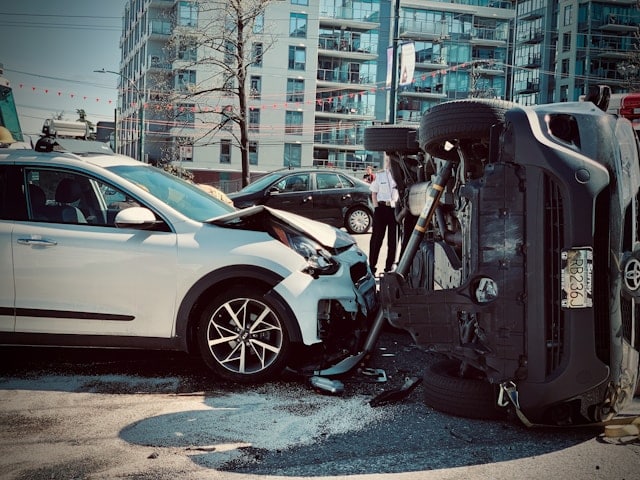Tips for Dealing with Total Loss Claims
 Navigating a total loss claim after a vehicle accident can be a complex and emotionally taxing process. When an insurance company deems the cost of repairs to exceed the value of the vehicle, it is considered a total loss. For many, this may be a relief, but for others, it might bring about financial uncertainty and disappointment. Understanding how to effectively handle a total loss claim can help you maximize the benefits and move forward more confidently. This article provides essential tips to guide you through the process of dealing with a total loss claim.
Navigating a total loss claim after a vehicle accident can be a complex and emotionally taxing process. When an insurance company deems the cost of repairs to exceed the value of the vehicle, it is considered a total loss. For many, this may be a relief, but for others, it might bring about financial uncertainty and disappointment. Understanding how to effectively handle a total loss claim can help you maximize the benefits and move forward more confidently. This article provides essential tips to guide you through the process of dealing with a total loss claim.
Understanding Your Insurance Policy
Know Your Coverage
Before you find yourself in a situation where you’re dealing with a total loss, it’s important to thoroughly understand your insurance coverage. Familiarize yourself with the terms related to total loss, such as actual cash value (ACV) and replacement cost value (RCV). Knowing these details will help you understand how the insurance company calculates the value of your vehicle.
Review the Declaration Page
Your insurance’s declaration page is a summary of your coverage, including the maximum amount your insurer will pay in case of a total loss. Review this document carefully so you know what to expect financially, which can aid in budgeting for a replacement vehicle.
Negotiating with Insurance Adjusters
Gather Documentation
Compile all necessary documents that prove the value of your vehicle. This includes maintenance records, receipts for any upgrades or recent repairs, and comparative prices for similar models in your area. This information can be crucial when disputing the insurer’s valuation.
Understand the First Offer
Often, the first settlement offer from an insurance company may be lower than the actual value of your vehicle. Understand that this is typically a starting point for negotiation. You do not have to accept the first offer if it seems unreasonable.
Effective Communication
When negotiating with insurance adjusters, maintain professional and persistent communication. Clearly express your concerns about the valuation and support your stance with solid evidence. Keeping a calm and informed demeanor can help facilitate negotiations.
Exploring Your Options
Consider Buying Back the Vehicle
In some cases, you may have the option to buy back the vehicle from the insurance company after receiving your payout. This can be beneficial if the damage is mostly cosmetic and you wish to repair the car at a lower cost than the payout.
Replacement vs. Cash Settlement
Decide whether you prefer a cash settlement or if your policy allows for a replacement vehicle of similar type and quality. Some insurers offer to replace your vehicle instead of settling in cash, which might provide a more suitable outcome for your situation.
Preparing for the Future
Re-evaluate Your Insurance Needs
After experiencing a total loss, consider re-evaluating your insurance needs. Perhaps opt for a policy with a replacement cost benefit if your previous one did not have this option. Assessing your current insurance can help prevent potential shortcomings in future coverage.
Learn from the Experience
Use this experience to better prepare for potential future incidents. Consider additional coverage options like gap insurance, which covers the difference between what you owe on a vehicle and its assessed value at the time of loss.
Conclusion
Dealing with a total loss claim is not straightforward and often involves several layers of negotiation and understanding complex insurance policies. By staying informed, prepared, and proactive, you can handle the process more effectively and ensure that you receive a fair settlement. Remember, the goal is to emerge from a total loss situation in a position that allows you to move forward positively, with a clear understanding of your rights and options.
